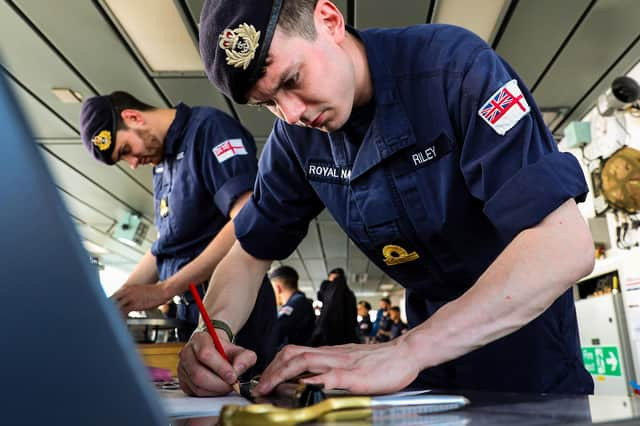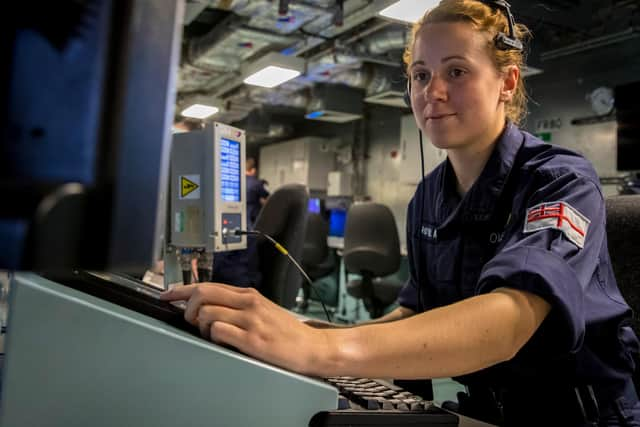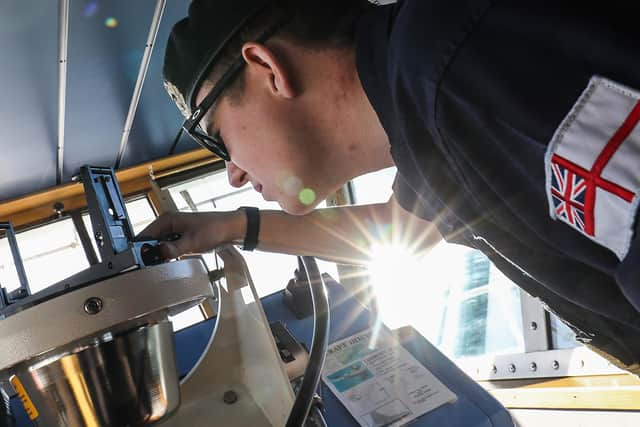Royal Navy overhauls officer training after 'falling behind' industry standard
This article contains affiliate links. We may earn a small commission on items purchased through this article, but that does not affect our editorial judgement.


Young officers will no longer face a ‘grilling’ from a ship’s captain, demonstrating what they have learned during their first concerted spell at sea after basic training.
Instead, they will be expected to draw upon all they’ve accumulated over three months on a front-line warship and explain how they might respond to an emergency, demonstrating leadership, knowledge and the ability to think on their feet.
Advertisement
Hide AdAdvertisement
Hide AdThe detailed assessment is the most significant change to the 12 weeks of common fleet time, which introduces most junior officers to the day-to-day running, routine and life aboard an operational warship – from patrol vessels all the way up to flagship aircraft carrier HMS Queen Elizabeth.


Every year around 200 officers undergo the spell at sea but the actual training package itself had not been reviewed for some time, ‘falling behind the industry standard for equivalent training for junior managers’, a navy spokesman said.
The Senior Service’s training management branch has spent the past two years working to adapt the experience making it more relevant to the Fleet of the 2020s.
Leading the refresh is Lieutenant Alexandra Head. She said: ‘A review of Royal Navy workplace training has been due for some time.


Advertisement
Hide AdAdvertisement
Hide Ad‘The new assessment is designed to give modern-day learners holistic feedback in line with current coaching and mentoring practices, allowing individuals to identify areas for self-improvement.
‘People today expect modern training. Our sea training needs to reflect that.’
The first group of 80 newly-commissioned officers will go through the new look Common Fleet Time at the end of August.
As well as the new final assessment, the refreshed training involves a considerably smaller ‘learning journal’ – known in the navy as a task book – for officers to complete on board.
Advertisement
Hide AdAdvertisement
Hide AdThe training will be much more modular with students gaining work experience in each department, rather than their chosen specialist branch such as logistics or warfare.
Trainees will be encouraged to shadow senior ratings especially to tap their extensive professional and naval knowledge, and provide vital feedback.
And the final assessment will no longer be carried out solely by the commanding officer, with other members of the crew now encouraged to sit on the assessing panel.
Looking for the latest Royal Navy updates from Portsmouth? Join our new Royal Navy news Facebook group to keep up to date.
A message from the Editor, Mark Waldron
You can subscribe here for unlimited access to our online coverage, including Pompey, with 70 per cent fewer adverts for less than 20p a day.
Comment Guidelines
National World encourages reader discussion on our stories. User feedback, insights and back-and-forth exchanges add a rich layer of context to reporting. Please review our Community Guidelines before commenting.
